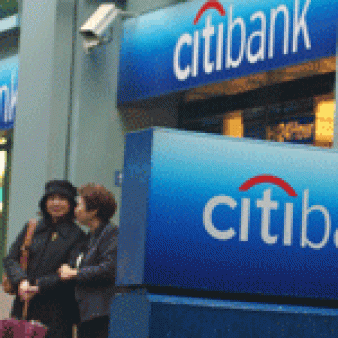
Citibank Korea rated on own profile
Standard & Poor's no longer incorporates an uplift on Citibank Korea Inc and rated it on its stand-alone profile.
Standard & Poor's Ratings Services lowered its long-term counterparty credit ratings on Citibank Korea Inc. to 'BBB+' from 'A-' and removed the ratings from CreditWatch, where they were placed with negative implications on 19 December 2008. At the same time, Standard & Poor's affirmed its 'A-2' short-term rating on the company and removed it from CreditWatch. The outlook is stable.
The ratings on Citibank and that of its ultimate parent, Citigroup Inc. currently incorporate a four-notch uplift owing to the potential of additional extraordinary support from the U.S. government, which owns 34 percent of Citigroup.
S&P believes that CKI remains strategically important to Citigroup. However, its revised view on CKI receiving group support stems from its belief that there is uncertainty about the U.S. government's willingness to endorse Citibank's extension of additional support to noncore overseas affiliates, including CKI, if this were required. "Thus, we believe the ratings on CKI should directly reflect its stand-alone credit profile, and no longer incorporate group support," said a Standard & Poor’s statement.
The ratings on CKI reflect its strong capitalisation as a result of US$800 million capital injection from its parent at the end of 2008, relatively sound corporate loan asset quality, and adequate net interest margins. The ratings are constrained by the bank's weak overall domestic market position, rising credit costs for household loans, and relatively small retail deposit funding base compared to its domestic peers.
The stable outlook on the ratings on CKI reflects S&P's expectation that the bank's asset quality will not deteriorate significantly, given its limited exposure to high-risk sectors. However, the ratings could be affected by material developments at Citigroup, CKI, or both. Thus, the ratings on CKI could come under downward pressure if the bank's asset quality or capitalisation deteriorates further than expected due to credit risk from unsecured household loans, or Citigroup's stand-alone credit profile significantly deteriorates. On the other hand, the ratings could be positively impacted if Citigroup's capacity to support CKI improves sufficiently.






















 Advertise
Advertise








